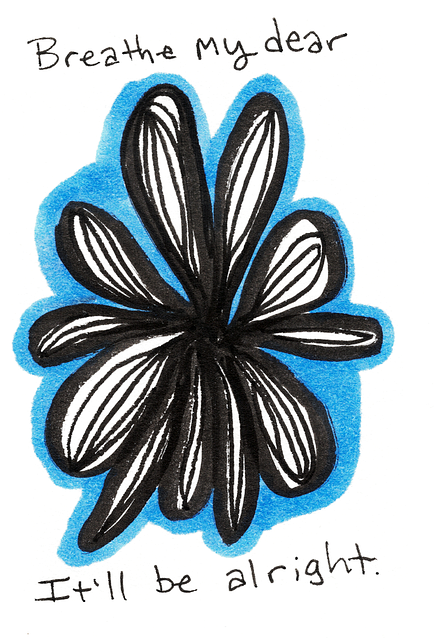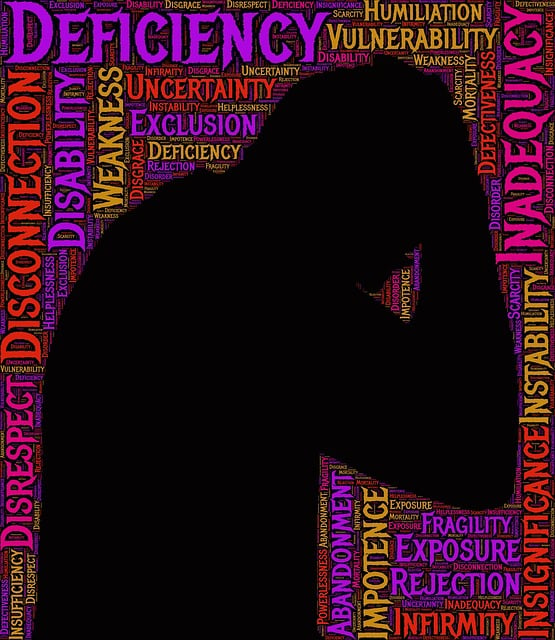Broomfield Russian Speaking Therapy (BRST) tackles social isolation in linguistically diverse communities by offering specialized Mental Health Education Programs. Through evidence-based techniques, cultural sensitivity, and tailored guidance including journaling exercises and confidence-boosting strategies, BRST empowers individuals to reengage with their communities and form healthier relationships. By combining assertive communication, CBT elements, and group therapy, BRST strengthens social connections, improves mood management, and reduces stigma associated with mental health conditions.
Social skills training is an essential component of managing mental health conditions, as it empowers individuals to navigate social interactions with confidence and ease. This article explores the profound impact of mental health on social relationships and delves into innovative approaches like Broomfield Russian Speaking Therapy, which has proven effective in enhancing communication skills for diverse populations. We discuss practical strategies, from communication techniques to building supportive communities through group therapy, offering valuable insights for improved well-being.
- Understanding the Impact of Mental Health on Social Interactions
- The Role of Broomfield Russian Speaking Therapy in Enhancing Social Skills
- Strategies and Techniques for Effective Communication
- Building a Supportive Community: Group Therapy and Beyond
Understanding the Impact of Mental Health on Social Interactions

Mental health conditions can significantly impact an individual’s ability to engage in social interactions, often creating a cycle of isolation and loneliness. Conditions like depression, anxiety disorders, or even schizophrenia may cause individuals to withdraw from social activities they once enjoyed. This withdrawal can lead to a decline in social skills, making it challenging to connect with others and form meaningful relationships. The result is a compounded problem, as social support and positive relationships are essential for managing mental health effectively.
At Broomfield Russian Speaking Therapy, we recognize the intricate relationship between mental health and social well-being. Our Mental Health Education Programs Design focus on empowering individuals with strategies to navigate social situations confidently. Through tailored guidance, including Mental Wellness Journaling Exercises, we help clients enhance their communication skills and build resilience in social settings. Additionally, our programs offer Confidence Boosting techniques, enabling individuals to reengage with their communities and foster healthier relationships.
The Role of Broomfield Russian Speaking Therapy in Enhancing Social Skills

Broomfield Russian Speaking Therapy (BRST) plays a pivotal role in enhancing social skills among individuals with mental health conditions, many of whom also speak Russian as their first language. This specialized therapy goes beyond traditional talk therapy by incorporating cultural sensitivity and linguistic expertise to address unique challenges faced by this demographic. BRST therapists employ evidence-based techniques tailored to improve emotional regulation—a crucial aspect of managing various mental illnesses.
Furthermore, the therapeutic environment fosters a safe space for clients to navigate and reduce the stigma associated with mental illness, especially within their linguistic community. By integrating cultural elements into therapy sessions, BRST not only enhances communication skills but also strengthens social connections, ultimately contributing to improved overall well-being. This approach is particularly beneficial in addressing social isolation and promoting successful integration back into community settings for those who have been affected by mental health conditions.
Strategies and Techniques for Effective Communication

Effective communication is a cornerstone of successful social skills training, especially when addressing mental health conditions. At Broomfield Russian Speaking Therapy, therapists utilize various strategies to empower individuals in managing their mental well-being through improved interaction and expression. One key technique involves teaching assertive communication, helping clients express their needs, emotions, and boundaries clearly and respectfully. This not only fosters healthier relationships but also plays a crucial role in mood management by providing individuals with the tools to navigate social situations confidently.
Additionally, therapists incorporate techniques from cognitive-behavioral therapy (CBT) to identify and challenge negative thought patterns that may impede communication. By promoting self-care routine development for better mental health, these strategies aim to reduce the impact of stigma associated with mental illness. Through practice and role-playing, individuals learn to engage in constructive conversations, enhancing their ability to connect with others and seek support when needed.
Building a Supportive Community: Group Therapy and Beyond

Building a supportive community is an integral part of social skills training for mental health conditions. Group therapy, facilitated by professionals like those at Broomfield Russian Speaking Therapy, offers a safe space to connect with peers facing similar challenges. This collective environment not only provides emotional support but also allows individuals to learn from one another’s experiences, fostering a sense of belonging and understanding. Through group interactions, members can develop coping strategies, improve communication skills, and enhance their ability to manage stress, all of which are crucial components for effective mental health care.
Furthermore, group therapy sessions encourage the exchange of diverse perspectives, promoting inclusivity and empathy. This supportive community extends beyond the therapy room, enabling individuals to apply learned skills in real-world settings. By participating in group activities and discussions, members can build confidence in social interactions, improve mood management, and enhance their overall well-being. In light of these benefits, risk assessment for mental health professionals should prioritize creating and maintaining such supportive communities as a key strategy in treating individuals with various mental health conditions.
Social skills training is an invaluable tool for individuals managing mental health conditions, offering a path to enhanced communication and improved relationships. As discussed, Broomfield Russian Speaking Therapy provides a unique approach, combining cultural sensitivity with evidence-based techniques to foster meaningful connections. By incorporating effective communication strategies and building supportive communities through group therapy, individuals can navigate social interactions with increased confidence and resilience. This holistic approach not only improves quality of life but also empowers individuals to thrive in various settings, ultimately promoting overall mental well-being.














